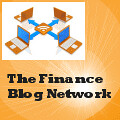Have you heard the song, "Signs" recently? It goes something like this:
"Signs, signs, everywhere there's signs.
"F$%^*' up the scenery, breakin' my mind
"Do this, don't do that, can't you read the sign?"
That's how I feel about fees. They are everywhere! You cannot go anywhere without being confronted with a fee. ATM fees, bank service charges, hotel and airport "taxes," postage fees, bridge tolls, you name it, there's a fee.
However, fees differ in one fundamental way: Some you have to pay and some you don't. In order to cross the Golden Gate bridge by car, you have to pay the toll (or, if you don't, you have to pay a fine, which is another term for a really expensive fee). To take the Jersey Turnpike, pay a fee.
However, having a bank account does not require you to pay a fee. Banks don't want you to know this, of course, but you don't have to pay monthly fees for checking or savings, you don't have to pay per check, you don't have to pay ATM fees. The list goes on and on.
There are a few banks out there that make a mockery of fees: Washington Mutual has stirred the banking pot in the past by making fun of old stodgy bankers who work for banks that nickel and dime its customers with ridiculous and unnecessary fees.
Remember, the bank has YOUR money! When you deposit YOUR money in their bank, they take YOUR money and lend it out to others at a higher interest rate than they offered you. They are making money off YOUR money. The fees are simply gravy. But as we all know, the best part about mashed potatoes is the gravy.
Did I just say that banks offer mashed potatoes for service? Not literally, but I think that's a good metaphor. They take something (YOUR money), mash it up, and give it to others in the form of a loan. They then prey off your gullibility, laziness, or short-sightedness by charging you fees to get, you guessed it, YOUR own money.
Banking certainly is not rocket science. It's pretty simple: Take in deposits, give 0 to a small interest rate, and give loans to qualified people (read: people who will pay back the principle, with interest) at a higher rate.
Somebody once said that man's greatest invention was compound interest. Man's second greatest invention might be bank fees.
So here's what you do: Find a bank that doesn't charge fees, or at the very least one that doesn't charge fees for things you might use frequently. I can understand a bank charging a small fee for wiring money or safe deposit boxes, but they should be ashamed of themselves for charging fees to use their ATMs or for "maintenance."
Once you find a bank whose fees (hopefully, lack thereof) you can stomach, don't, I repeat, DON"T, fall into their trap where you're obligated to pay a fee. For example, many banks offer "overdraft protection." Sounds great on the surface. After all, if you bounce a check, your fees to pay the merchant you stiffed (probably unintentionally) may be a lot higher than your bank would charge you. There are two general ways a bank offers this protection: One way is through linking your checking account with a savings account. When you don't have enough funds to cover a check that you have written, the bank draws money out of your savings account plus a small fee.
The other way, much more insidious, is through linking your checking account with a line of credit. Again, when you don't have enough funds to cover a check you have written, the bank accesses your line of credit, draws money from it to cover the check, plus a fee. Then, if you don't pay off that balance on your line of credit, they continue to charge you interest on the balance. So not only do you get hit with a one-time fee, but you also get hit with a perennial interest charge to boot!
The bottom line is: Don't bounce checks. Gone are the days when you could "float" a check (writing a check against an account you know doesn't have enough funds to cover the check with the knowledge that money will be deposited into that account before the bank clears) -- so don't even try. Most checks nowadays don't even physically move from your merchant to his bank back to your bank and then finally back to you. Nope. It's an electronic exchange between your merchant's bank and your bank, where only the check image is transferred, electronically (as well as the funds).
If you do bounce a check, there's a very good possibility that you could talk to a bank service representative and have the fee reversed. That's assuming you haven't bounce many (any?) checks there in the past.
Moral #1: Don't bounce checks.
Moral #2: Don't pay fees unnecessarily
Find institutions that are reasonable with their fees. Online banks like ING Direct offer great interest rates on deposits, reasonable transfer times between them and your checking account, and ZERO fees.
Be sure to check out the development of my free eBook, "Stock Investing Basics."
Want to learn how to sell anything online? Here's how.
Subscribe to:
Post Comments (Atom)






0 comments
Post a Comment